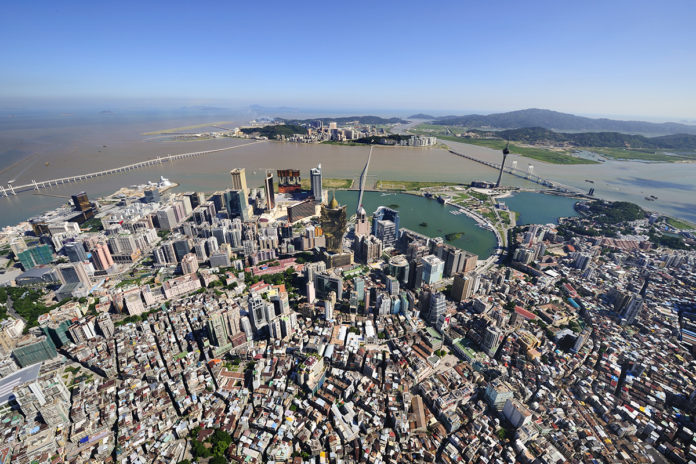The new boss of the Philippine Amusement and Gaming Corp, Pagcor, wants to take the powerful regulator and operator in a different direction. It is time to bring more foreign gaming investors into the Philippines, including one from Macau, said the public corporation’s chairman and chief executive, Cristino Naguiat. Mr Naguiat also wants deadlines for their investment projects to be met, standardised online gaming contracts and Pagcor’s eventual withdrawal from gaming operations, so it can focus on regulatory duties. Five months after taking office, Mr Naguiat chose to outline the new strategy for casino and online gaming in the Philippines in an exclusive interview with Macau Business. He has two main objectives for state-owned Pagcor: to improve its casino operations and enhance the US$10-billion (MOP80 billion) Manila Entertainment City project, in which two more operators are being invited to join the present four. One is from Macau. Mr Naguiat said Pagcor had contacted a Chinese gaming operator in Macau and a Korean operator. He said both were “very, very interested”. If the deals go ahead, they will join Malaysia’s Genting, Japanese businessman Kazuo Okada – who is the boss at Aruze and calls Steve Wynn a business partner – and two Philippine companies in the massive gaming and entertainment development, to be built on 72 hectares of reclaimed land in Manila Bay. Right ingredients“Everybody is interested in joining the gaming scenario in the Philippines after seeing [the example of] Singapore,” Mr Naguiat said. But he wants a new approach to the project and is not interested in anything less than a US$1 billion investment from each of the gaming operators. It is not the only change the new gaming boss wants. Before he took over “there was no time reference, no time frame for the investment commitment”, Mr Naguiat said. “I want everything to be done in three or four years.” Pagcor’s main aim now is integrated resorts, as in Singapore and Macau, instead of simple casino operations. “Integrated resorts should have all the ingredients of entertainment,” Mr Naguiat said, with casinos being just one piece of the puzzle. Pagcor is considering new casinos in Clark, just to the north of Manila, in Laoag, further to the north, and in the central Philippine city of Cebu. Pagcor is also upgrading its own casinos. “We are buying new machines and software, renewing furniture, basically improving our casino operations and efficiency,” said Mr Naguiat. Legislative hurdleThe long-term goal is the privatisation of Pagcor casino operations, as promised by the new government of President Benigno Aquino, a close friend of Pagcor’s new boss. “I think in due time we will become more a regulator than an operator,” Mr Naguiat said. “That is why we want [foreign operators] to come in with the investments and to attract foreign tourism. We don’t want them to focus on local tourism. Once they have done that, Pagcor will have no role any more in operating casinos.” It could take some time to achieve because the law will have to be amended, he said. Complicated arrangements between Pagcor and the multiple operators of online gaming – there are around 180 e-game cafes in the Philippines –are under review, he said. “I am so confused, also, with all those different sharing schemes.” Standardised online gaming contracts are now Pagcor’s aim instead of separate revenue-sharing deals with various partners. Pagcor’s gaming revenue in the first nine months was nine percent lower this year than last. But Mr Naguiat expects revenue to increase next year, since Genting’s Resorts World is now fully operational.
—
























